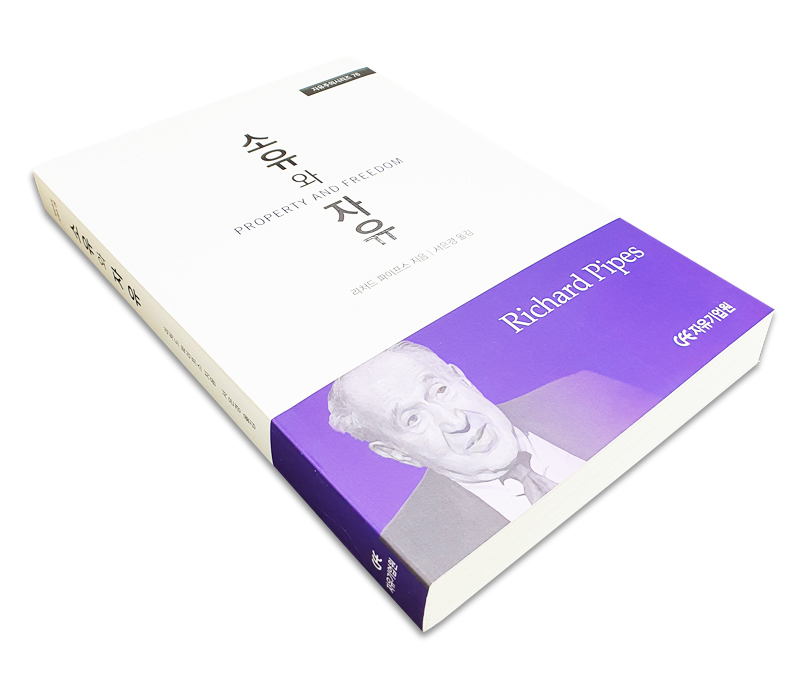Center for Free Enterprise (CFE) recently released a new Korean translation of <Property and Freedom> by Richard Pipes. Pipes, a world-renowned historian, served as the Baird Research Professor at Harvard University and was also the Director of East European and Soviet Affairs under President Reagan. Since its initial publication, <Property and Freedom> has been acknowledged as a masterpiece, explaining the intricate relationship between property ownership and freedom. It is truly a gift for Korean readers to enjoy this newly designed and edited version of the book, especially in an era where many readily submit to government regulation and control.

Friedrich Hayek referred to socialism's planned economy as the "road to serfdom." Pipes’ book details how people's frustration with material needs leads them to seek solutions through state power, ultimately causing the socialist planned economy to descend into servitude. For anyone interested in contemplating individual liberty and the role of government authority, this book is considered a must-read classic.
<Property and Freedom> argues that property can exist without freedom, but freedom cannot exist without property. The book traces human history to explore the relationship between ownership and politics. A notable example is the UK, where private property is well-established and has contributed to the nation's flourishing. In contrast, Russia, with its lesser-developed sense of freedom, has historically been ruled by autocrats. As a renowned scholar in Russian history, Pipes emphasizes the vital role of property ownership.
The book is divided into five chapters. The first two explore the concept and history of property ownership and the policies surrounding it. The third and fourth chapters present case studies of Russia and the UK, analyzing the relationship between property and politics in each. In conclusion, Pipes warns of the looming threat to societal freedom posed by the welfare states of the 20th century.
Readers will gain insight into the influence of property ownership on the advancement of freedom and democracy. By revealing the deep connection between freedom and property, the book provides a valuable caution against government regulation and its inherent hypocrisy.
It is no surprise that freedom and property are interconnected. Many books that focus on freedom emphasize political aspects but often overlook its economic foundations. Similarly, the cultural and political influences of property in economic history have been largely neglected. <Property and Freedom> bridges these gaps, illustrating how property and freedom are mutually reinforced.






